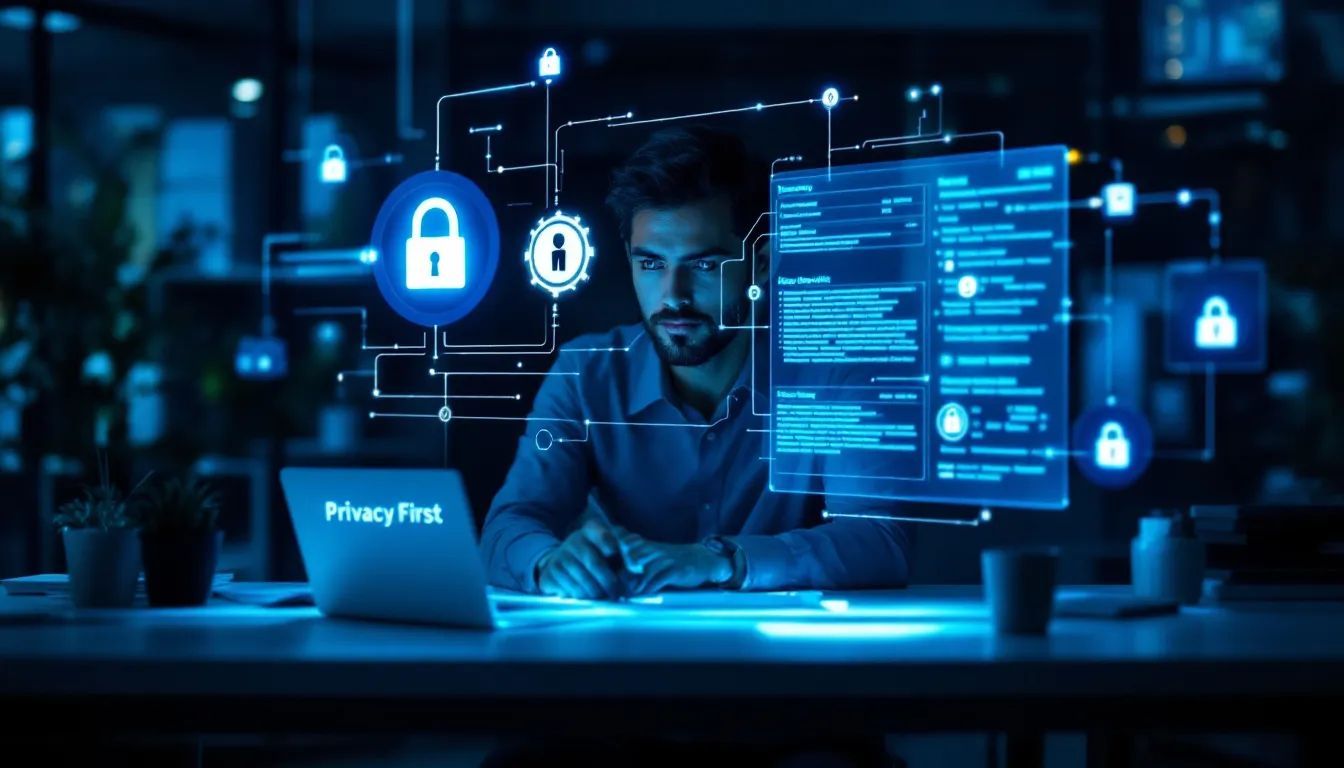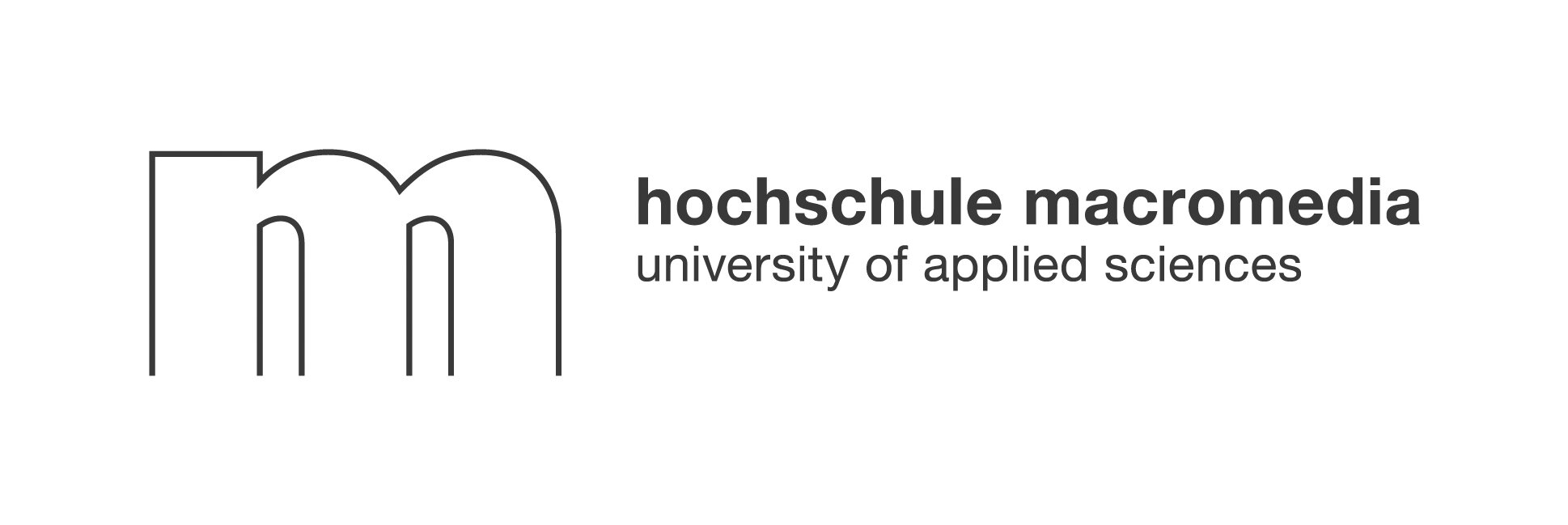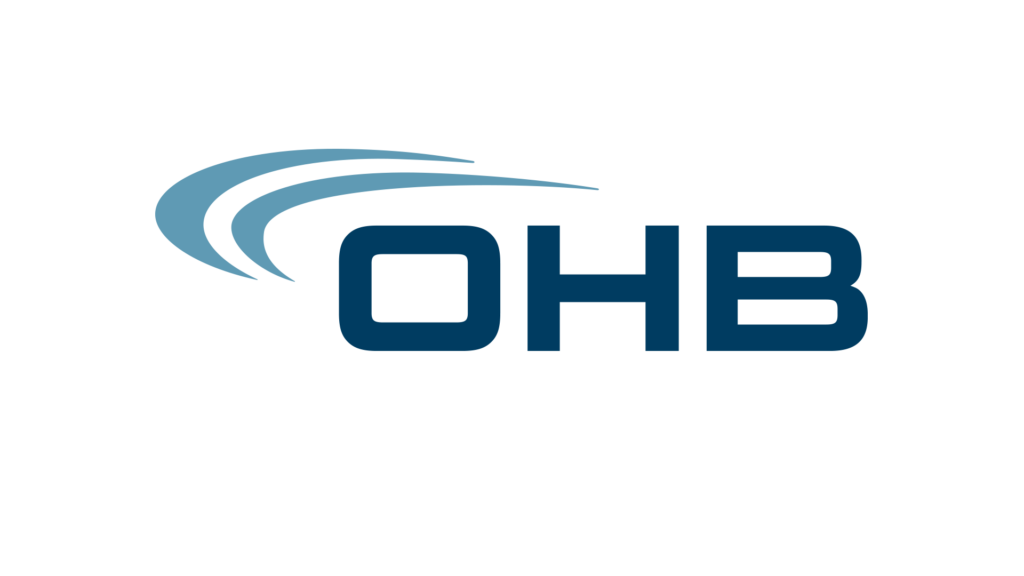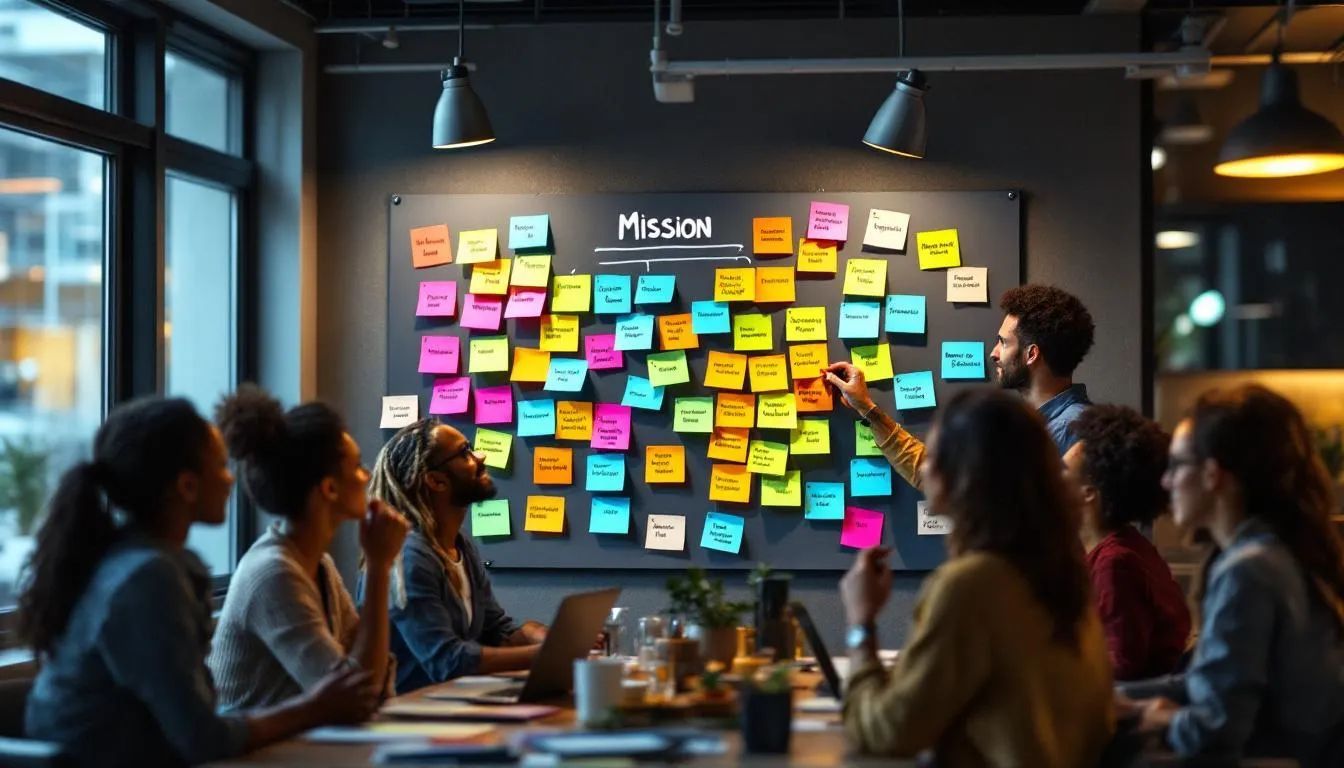In 2025, privacy in employee data is no longer just a compliance checkbox—it’s the backbone of workplace trust and innovation. As organizations lean into remote and hybrid models, the challenge is clear: how can HR foster genuine connections and engagement without compromising sensitive information? This playbook unpacks the evolving landscape of employee data privacy, why it’s mission-critical, and how forward-thinking solutions like Neroia are transforming engagement with AI-driven secure micro-events. Let’s explore why privacy in employee data is the new frontier for workplace culture, trust, and productivity.
Why Protecting Employee Information Is Mission-Critical
Rising breach statistics and reputational fallout
Every year, the volume of sensitive employee data collected by HR departments grows—covering not just current staff, but also applicants, contractors, and even their families. According to Statista, over 15 million records were exposed in reported data breaches in just one quarter of 2022, up 37% from the previous year. This surge in breaches isn’t just a tech issue; it’s a human one. When employee data is mishandled or leaked, the reputational damage can be swift and severe. Companies face lawsuits, regulatory fines, and the loss of public trust.
“A single breach can undo years of employer-employee goodwill, leading to costly legal battles and a damaged brand image.”
The human factor: trust, morale and retention
Beyond the legal and financial risks, privacy in employee data directly impacts workplace trust. Employees who feel their information is secure are more likely to engage, collaborate, and stay with the organization. Conversely, privacy missteps erode morale and drive talent away. In today’s competitive market, retaining top talent hinges on showing respect for individual privacy and fostering a culture of transparency.
Navigating the Legal Maze: U.S. and Global Rules
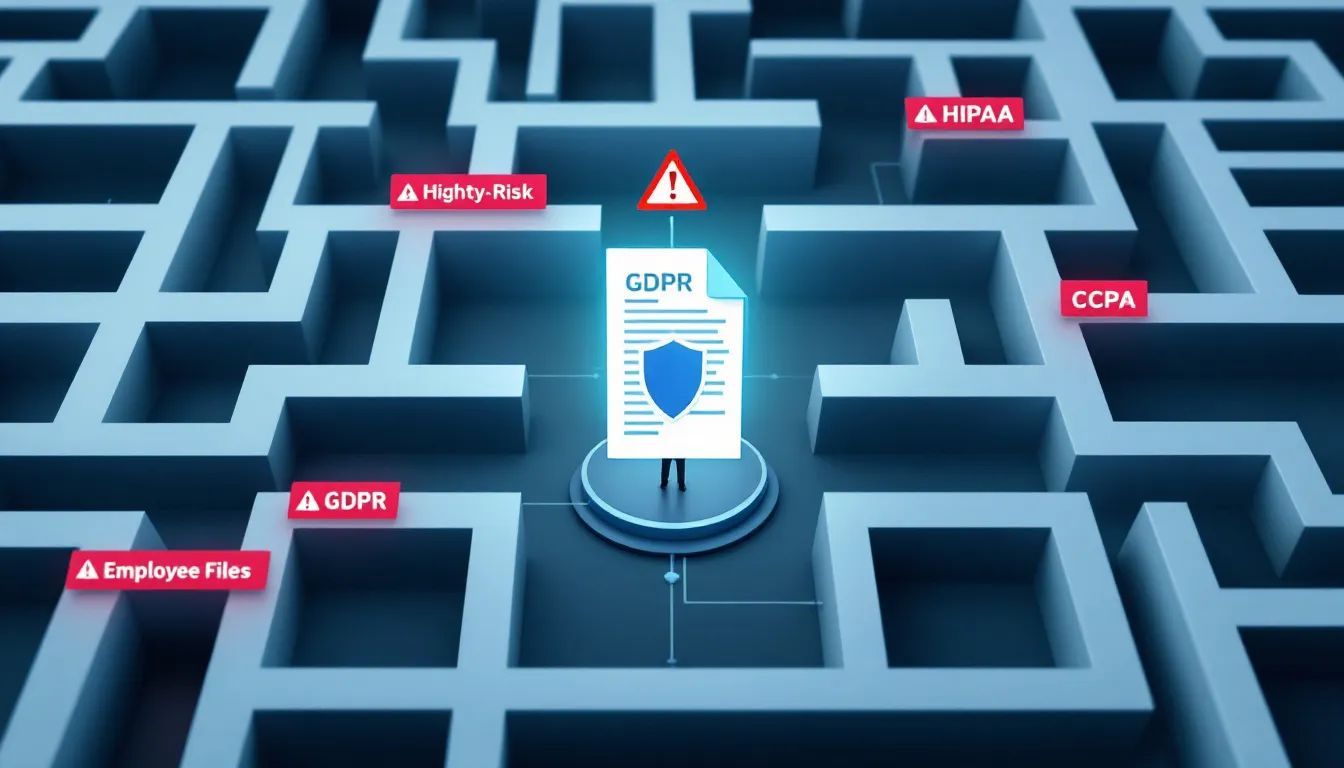
Core U.S. statutes HR can’t ignore
The U.S. legal landscape is a patchwork of federal and state laws, each offering different layers of protection. Key statutes include:
- Health Insurance Portability and Accountability Act (HIPAA): Protects medical data.
- Americans with Disabilities Act (ADA): Requires confidentiality of disability and medical records.
- Genetic Information Nondiscrimination Act (GINA): Prohibits genetic discrimination.
- California Consumer Privacy Act (CCPA): Extends consumer-style privacy rights to California employees, including breach notification and the right to access or delete personal data.
Other states, like New York and Virginia, have their own regulations around Social Security numbers, breach notifications, and data destruction. HR must stay vigilant, as these rules are constantly evolving.
International frameworks shaping policy
Globally, regulations like the General Data Protection Regulation (GDPR) in Europe, Brazil’s LGPD, and Singapore’s PDPA impose strict requirements on how employee data is collected, processed, and transferred. For example, GDPR mandates data minimization and limits retention to what’s strictly necessary. These laws often have extraterritorial reach, meaning a U.S. company with EU-based employees must comply with European standards.
Emerging state laws on biometric and AI monitoring
States like Illinois and Colorado are pioneering laws on biometric data (fingerprints, facial scans) and AI-driven monitoring. The Illinois Biometric Information Privacy Act (BIPA) and Colorado’s new amendments restrict how employers collect and use such data. Employers must now obtain explicit consent, limit usage, and avoid tracking employees’ locations or behaviors without clear justification.
Myths That Put Organisations at Risk
“Consent covers everything” — why power imbalance matters
A common misconception is that employee consent makes any data practice legal. In reality, the employer-employee power dynamic means consent is rarely truly voluntary. Most privacy laws, including GDPR, discourage relying solely on consent for core HR processes.
“True privacy in employee data requires more than a signature—it demands fairness, transparency, and respect for boundaries.”
“We can keep data forever” — the retention trap
Holding onto employee data “just in case” is risky. Many regulations require organizations to delete data once it’s no longer needed. Over-retention increases exposure in case of a breach and can violate laws like GDPR, which mandates data minimization.
“Only IT owns security” — shared responsibility explained
While IT teams implement technical safeguards, HR, managers, and even employees share responsibility for privacy in employee data. From drafting policies to training staff and selecting vendors, privacy is everyone’s job.
High-Risk Touchpoints Across the Employee Lifecycle
Recruiting and pre-hire screening
The privacy journey starts before someone is even hired. Application forms, background checks, and interview notes often contain highly sensitive data. Employers must:
- Inform applicants about what data is collected and why.
- Limit collection to what’s relevant for the role.
- Securely delete information on unsuccessful candidates unless explicit consent is given for future consideration.
On-the-job performance and health records
During employment, HR collects data on performance, attendance, health, and even social engagement. This data is valuable for analytics but must be handled with care. Overly intrusive tracking—like monitoring keystrokes or private messages—can backfire, damaging trust.
Off-boarding and archival duties
When employees leave, organizations must:
- Clearly define retention periods for personal data.
- Securely destroy records no longer needed.
- Limit access to archived data and honor former employees’ rights to access or delete their information.
Embedding privacy in employee data throughout the lifecycle
Privacy isn’t a one-off task. It should be woven into every stage of the employee experience—from onboarding to exit interviews. This holistic approach is at the heart of employee data privacy solutions that build trust and resilience.
Building a Practical Compliance Framework
Data mapping and minimisation tactics
A robust privacy program starts with knowing what data you have and where it lives. Data mapping helps organizations:
- Identify all sources and types of employee data.
- Limit collection to what’s necessary for business needs.
- Regularly review and purge outdated records.
Vendor and cloud due-diligence checklists
Most HR teams rely on third-party vendors for payroll, benefits, and engagement tools. Before sharing employee data, organizations should:
- Vet vendors for security certifications and privacy policies.
- Ensure contracts require data protection and breach notification.
- Regularly audit vendors for ongoing compliance.
Monitoring vs. Privacy in the Hybrid Workplace
What counts as reasonable surveillance today
With remote and hybrid work, many companies have ramped up digital monitoring—tracking logins, video calls, or even keystrokes. However, what’s “reasonable” is changing. Laws now require that surveillance be:
- Proportionate to the business need.
- Transparent and not overly intrusive.
- Limited to work-related activities.
Transparent policies and worker notifications
Employees must be informed—clearly and in advance—about what is being monitored and why. This transparency is a cornerstone of workplace trust strategies and is required by emerging laws like the Stop Spying Bosses Act.
Tools to audit algorithms for bias
AI-driven secure engagement platforms are on the rise, but they bring new risks. Algorithms used for performance reviews or engagement must be regularly audited to prevent bias and ensure fairness. This is especially important as more HR decisions are automated.
Five-Step Action Plan for Stronger Employee Data Privacy
- Audit current practices
Conduct a thorough review of all data collection, storage, and sharing activities. Identify gaps and high-risk areas. - Close policy gaps
Update privacy policies to reflect current laws and best practices. Ensure they are accessible and easy to understand. - Train managers and staff
Regularly educate employees about privacy requirements, data handling, and how to spot risks. - Automate rights requests
Use secure systems to manage employee requests for data access, correction, or deletion, reducing manual errors. - Review annually and iterate
Privacy is not static. Schedule annual reviews and adapt policies as technology and regulations evolve.
“A proactive, continuous approach to privacy in employee data not only reduces risk but builds a culture of respect and innovation.”
Neroia: Privacy-First AI-Driven Engagement for the Modern Workplace
Traditional company-organized engagement programs often rely on broad, sometimes intrusive data collection—tracking attendance, monitoring emails, or even analyzing private messages to measure engagement. These methods can feel invasive, eroding trust and making employees wary of participating. As organizations seek employee data privacy solutions that foster real connection without surveillance, Neroia offers a transformative approach.
Neroia’s AI-driven platform reimagines workplace engagement by orchestrating micro-events—small, organic gatherings like yoga sessions, company runs, or cultural exchanges with just 3-4 participants. Instead of tracking individuals, Neroia uses anonymized analytics to recommend activities tailored to employees’ interests and schedules, all while maintaining a closed, secure community.
During pilot programs, such as yoga mornings and cycling meetups, Neroia’s AI chat system coordinated participation discreetly, never exposing personal data or activity choices to managers or peers. Employees could effortlessly discover new connections without fear of being monitored or profiled. This approach breaks down workplace silos and encourages authentic, informal interactions—proving that privacy in employee data is not a barrier, but a catalyst for engagement and well-being.
“Neroia’s commitment to privacy isn’t just about compliance—it’s about building a culture where trust and human connection thrive, powered by ethical AI.”
Unlike traditional engagement tools, Neroia never uses invasive tracking or open-ended surveillance. Instead, the platform leverages AI-driven secure engagement to match coworkers for micro-events, using only the minimum data required and always with transparency. Employee-centricity is at the core: all analytics are anonymized, and employees retain control over their participation.
As hybrid and remote work become the norm, Neroia ensures privacy in employee data through:
- Curated micro-events: Activities are suggested by AI based on interests, not surveillance.
- Anonymized analytics: HR gains insights into engagement trends without accessing personal data.
- Secure integrations: The platform works seamlessly with existing benefits and resources, maintaining a closed, protected environment.
By prioritizing privacy, Neroia enables organizations to boost engagement, well-being, and productivity—without sacrificing trust. This is the future of workplace trust strategies: ethical, AI-driven, and privacy-first.
Why Traditional Engagement Programs Fall Short
- Intrusive tracking of employee activities and communications.
- Lack of transparency about data use and retention.
- One-size-fits-all events that don’t resonate with diverse interests.
- Risk of data breaches and regulatory non-compliance.
- Erosion of trust and voluntary participation.
How Neroia’s AI Platform Sets a New Standard
- AI-driven secure engagement via micro-events, not mass tracking.
- Anonymized data for HR analytics—no personal identifiers exposed.
- Closed, secure community with employee-controlled participation.
- Seamless integration with existing benefits and resources.
- Transparent policies and ongoing privacy audits.
Steps to Implement a Privacy-First Engagement Strategy
- Assess current engagement tools for privacy risks.
- Map out all employee data touchpoints and minimize collection.
- Select platforms, like Neroia, that prioritize anonymized analytics and secure micro-events.
- Educate employees on their rights and the privacy safeguards in place.
- Continuously review and improve privacy and engagement policies.
The Future: Privacy as the Foundation of Workplace Culture
As organizations navigate the complexities of privacy in employee data, the path forward is clear: ethical, AI-driven solutions that foster authentic connections without compromising trust. Neroia leads this transformation by making privacy the foundation of its engagement platform—empowering employees to connect, collaborate, and thrive in a secure environment.
“When privacy and engagement go hand-in-hand, everyone wins: employees feel valued, HR meets compliance, and the organization unlocks its full potential.”
In 2025 and beyond, the most successful workplaces will be those that see privacy not as a hurdle, but as a springboard for innovation, trust, and community. Neroia’s vision of effortless, secure, and meaningful engagement is setting the standard for the future of work—where privacy in employee data is the key to unlocking happier, more connected, and more productive teams.
Ready to revolutionize your workplace culture? Neroia is the best option for organizations seeking a privacy-first, AI-driven engagement solution that truly puts employees first.
